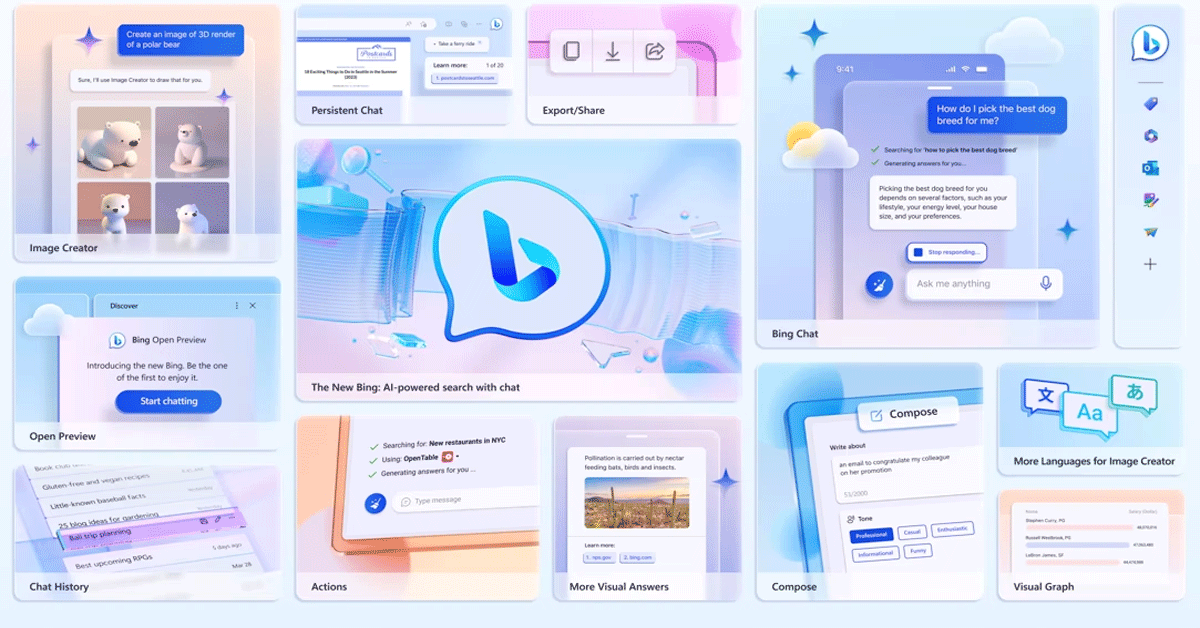Artificial Intelligence (AI) has been a game-changer in various fields, and search engines are no exception. Microsoft Bing, a leading search engine, has basically enhanced their search engine with AI and introduced some new and cool features to users. We talked about the best AI-powered search engines out there, and Bing is one of them.
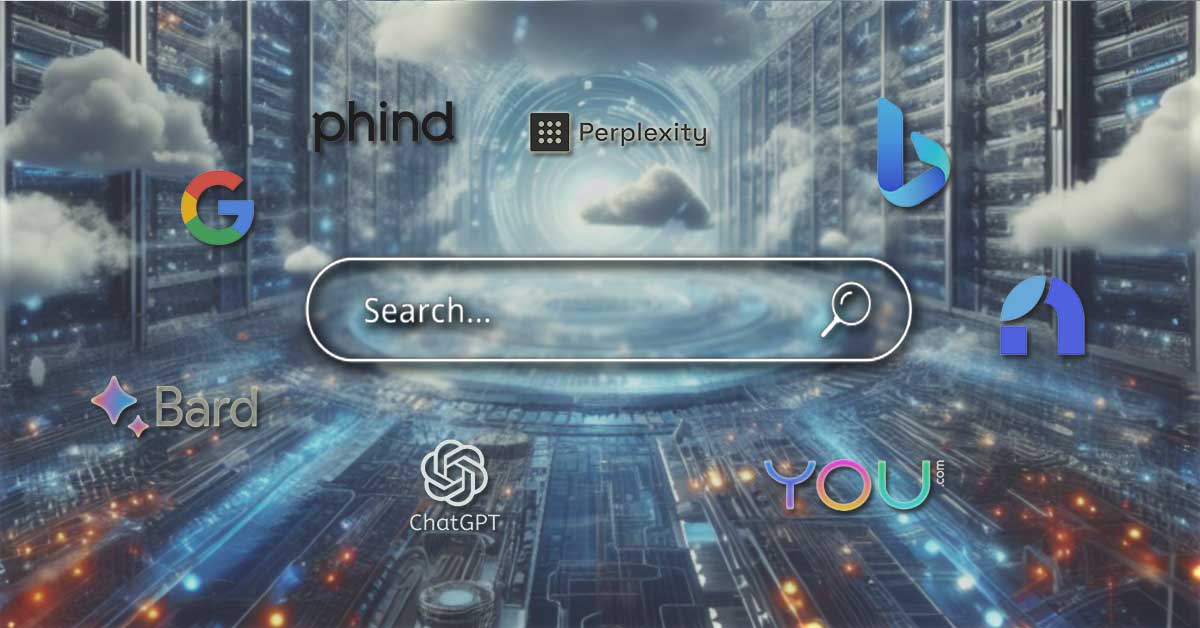
Microsoft Bing History
Microsoft Bing is one of the famous web search engines owned and operated by Microsoft. It has predecessor search engines like MSN Search, Windows Live Search, and Live Search. This search Bing engine is written using the technology of ASP.NET.
The transition from Live Search to Bing a significant move, announced by Microsoft CEO Steve Ballmer (former) on May 28, 2009, with the official release following on June 3, 2009.
Microsoft also struck a deal with Yahoo! that led to Bing powering Yahoo! Search. Microsoft's commitment to open-source technology in 2016 and then made the BitFunnel search engine indexing algorithm and various components of Bing open source.
Bing search engine had a monthly user base of over 1.1 billion individuals. In the fiscal year 2022, Microsoft achieved an impressive revenue of $11.59 billion through search ads. Notably, Bing's market share witnessed substantial growth, surging from 3.99% to a robust 8.88%.
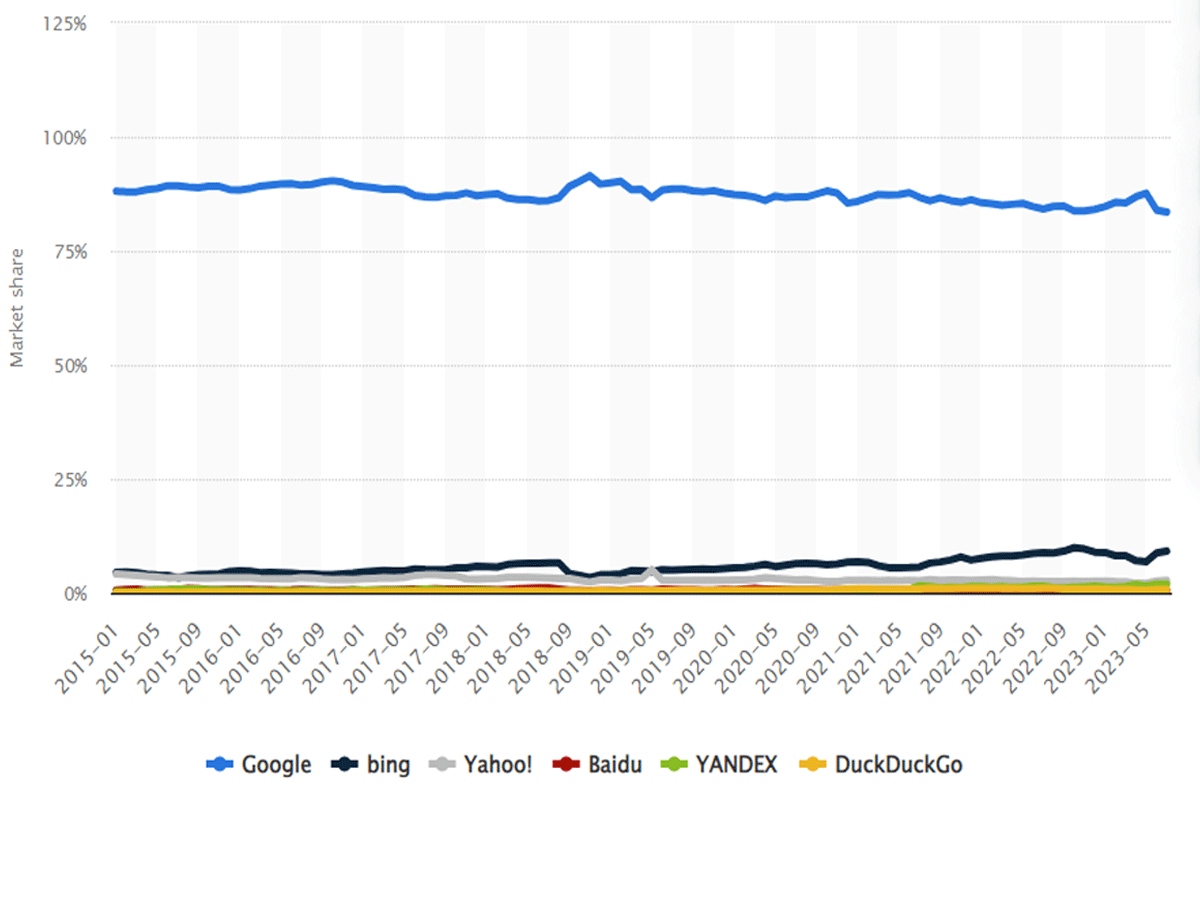
As of 2023, Bing holds the title of the second-largest search engine globally, commanding a query volume of 12%, with only Google overshadowing it at 79%. Competitors like Baidu and Yahoo! Search, powered by Bing, hold smaller but notable market shares of 5% and 2%, respectively.
AI-Powered Bing
Microsoft launched an all-new, AI-powered Bing search engine and Edge browser on February 2, 2023. With this new version of Bing, powered by GPT-4, Microsoft expects to deliver better search results, more complete answers, a new chat experience, and the ability to generate content.
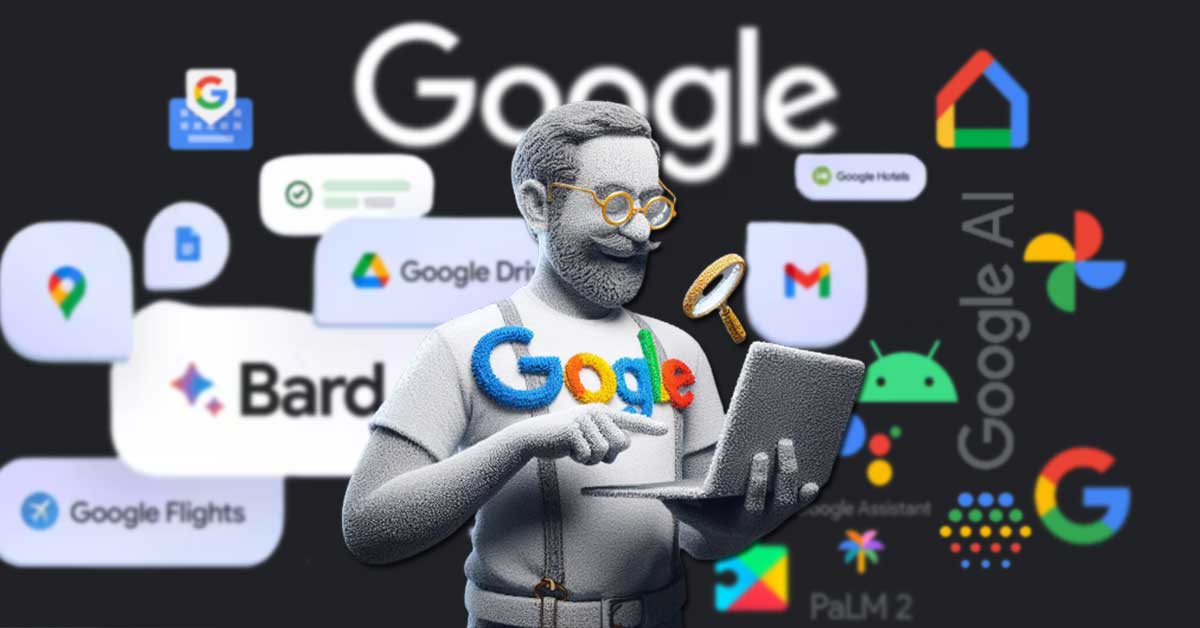
The goal is to transform these tools into an AI copilot for the web and tie the competition gap with one and only Google search.
Bing's AI Capabilities
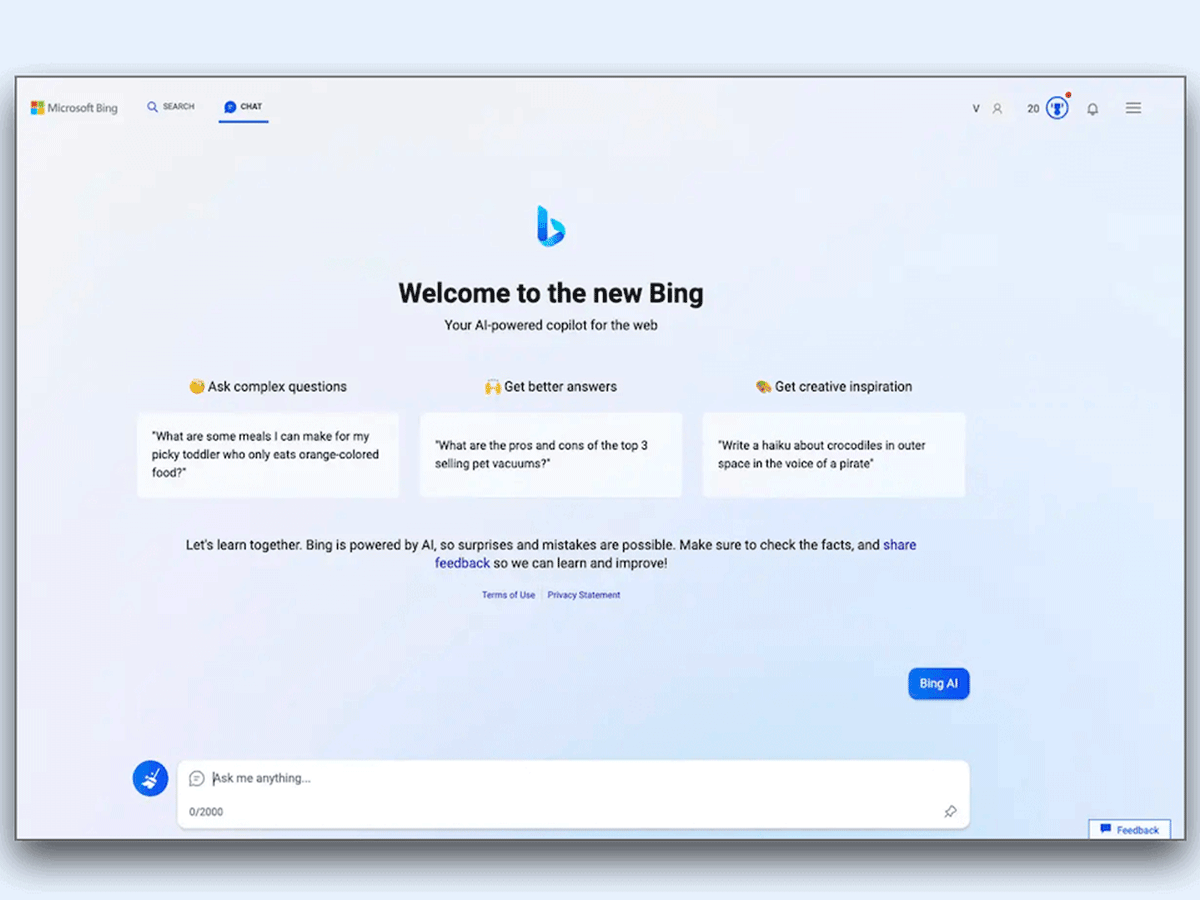
With this new AI integration, Bing Search ended up getting several features.
AI-Enhanced Search: Bing's enhanced search functionality delivers more valuable outcomes by presenting additional information, tools, and widgets alongside each search query.
For instance, when exploring a town to visit, the search page not only displays a list of pertinent websites but also provides additional details such as images, a map, town history, local hotels, key attractions, and other potentially helpful searches.
Bing and Microsoft Research have been developing and deploying large neural network models such as MT-DNN, Unicoder, and UniLM to maximize the search experience.
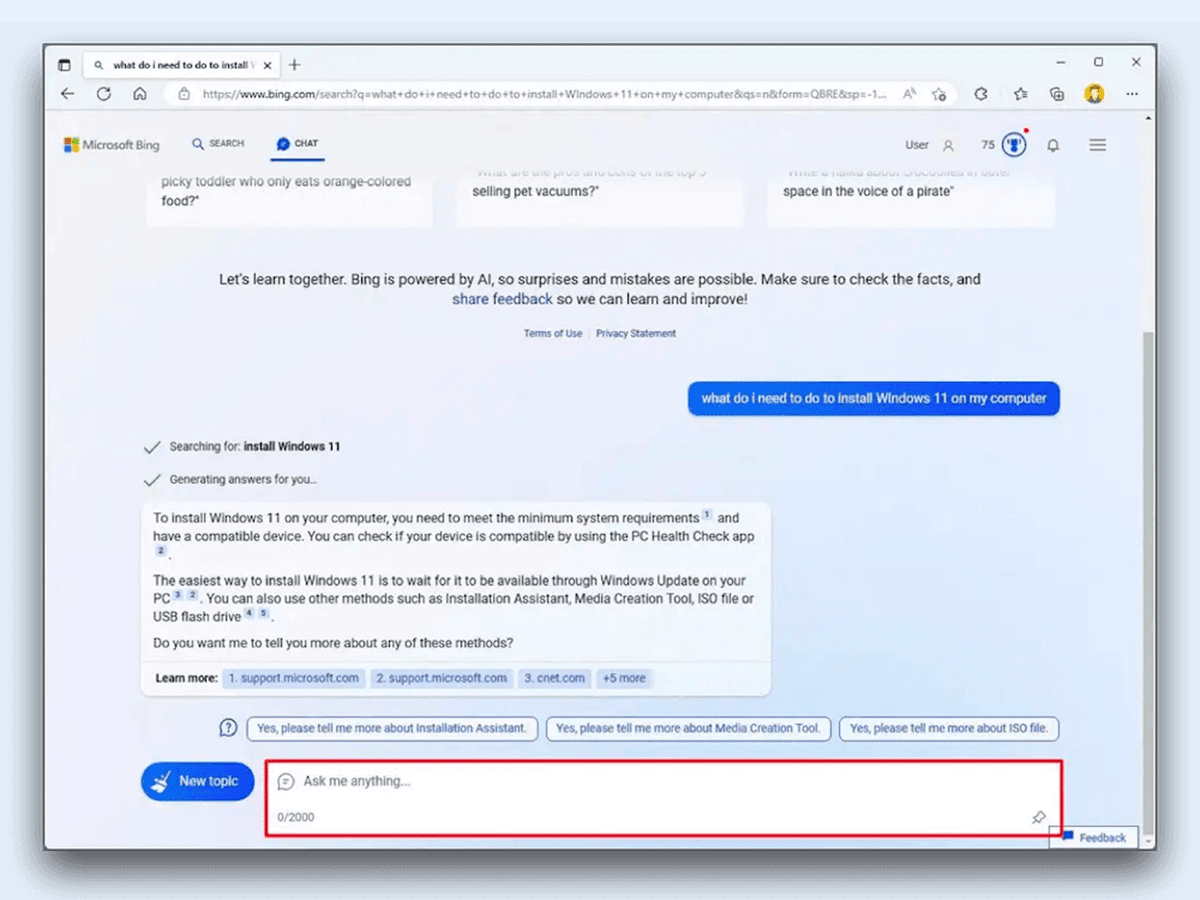
Bing Chat: If you're already impressed by Bing's conventional search capabilities, you'll love this feature, just like me. This AI-driven conversational search tool delivers thorough results for intricate inquiries and commands.
For example, you can inquire about the top schools in your vicinity and nearby parks, complete with distances to each school. It can present this information as a text-based response or spreadsheet, and it goes the extra mile by including images, additional links, and school web pages.
Imagine this as a ChatGPT-4 with an internet connection and the power to search for things on the internet.
Bing Image Creator: After Bingchat, this was my second favorite feature on Bing search. This feature comes Integrated into Bing Chat and is accessible through the Bing Image Creator icon on your Microsoft Edge sidebar. The Bing Image Creator is powered by one of the most powerful image creators out there, DALL-E -3.
Bing Compose: OpenAI ChatGPT is already the king of text generation. With Bing, Compose creating content is very easy. You can choose what the tonality is and even how long your article is gonna be.
This customizability will help you to meet your specific copywriting requirements. This feature is also integrated into Bing Chat, conveniently accessible through the Bing Chat icon on your Microsoft Edge sidebar. Whether you're drafting emails, blog posts, shopping lists, speeches, summaries, poems, short stories, or any other content, Bing Compose will make it pretty easy.
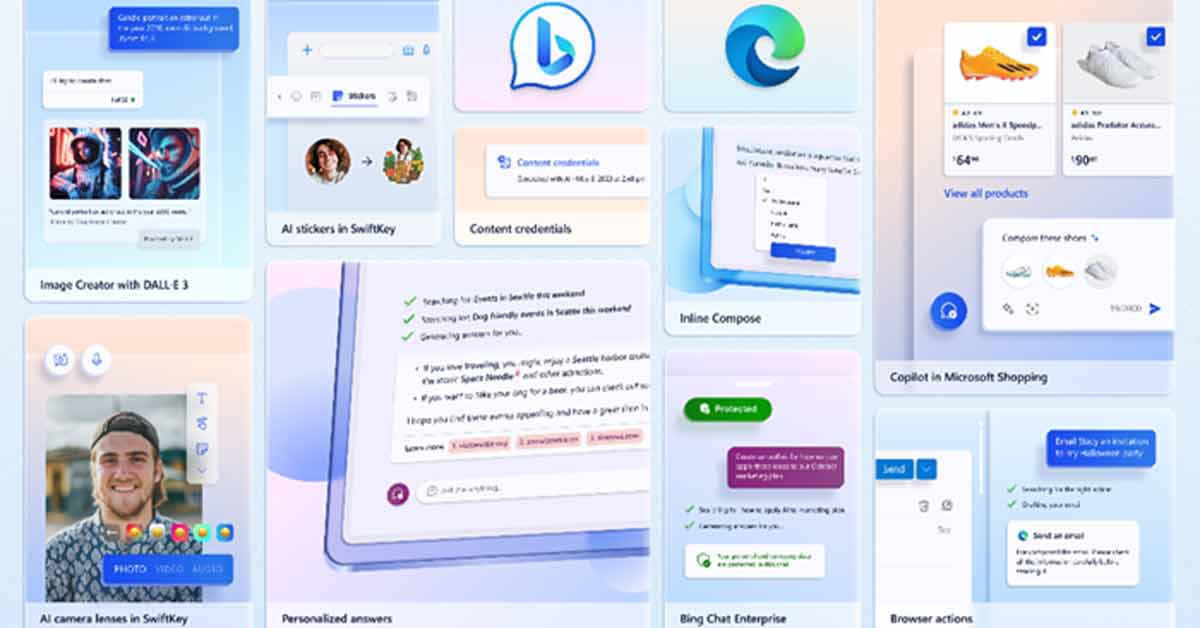
Knowledge Cards 2.0: Bing introduces AI-powered Knowledge Cards 2.0, situated on the right side of your search results page. The main purpose of this is to compare with Google's Search Generative Experience (SGE). These cards, generated through artificial intelligence, offer enriched information, ranging from timelines of related events to recommendations for deeper exploration.
Advantages and Disadvantages of Bing Chat

There are always going to be pros and cons in every tool. Especially if it is powered by AI, so let's look at them before you start using Bing search.
Bing Chat is an AI chatbot and generative AI app showcasing the power of NLP and large language models (LLMs). Unlike ChatGPT, it employs the Generative Pre-trained Transformer (GPT) language model for natural text-based responses.
Powered By GPT-4 Model: Bing Chat takes the lead by leveraging the GPT-4 model, a multimodal language giant surpassing its predecessors.
Generates Human-Like Responses: This chatbot crafts responses mirroring human conversation, whether it's typed or spoken.
Non-English Language Support: Fluent in languages like French, Spanish, German, Chinese, and Japanese, making it versatile across regions.
Tailored Conversations Feature: Customize your chat with three modes: Creative, Balanced, and Precise, each leveraging different GPT versions.
Functions as a Web Search Engine: Integrated with Bing, Bing Chat pulls real-time info from the web, a plus over ChatGPT's knowledge base.
Provides Cited Reference Materials: Sets itself apart by including superscripts linking to reference materials, a boon for research.
Generates Analyses and Summaries: Analyzes text, images, and graphics, proofreads, edits, and even debugs code—quite the versatile assistant.
Integrated With Image Generator: Bing Chat can transform text prompts into visuals using the DALL-E text-to-image service.
Free and Available on Different Platforms: Accessible for free on various platforms—Windows, macOS, iOS, Android, and even integrated with Skype.
Disadvantages Of Bing Chat

Limited Chats and Sessions: Users face constraints on daily chats, recently upped to 30 per conversation, a move by Microsoft to avoid system overload.
Lacks More Creative Responses: Despite a Creative style, Bing Chat needs more response length and creativity compared to ChatGPT.
Chat Responses Are Shorter: Bing Chat doesn't match up to ChatGPT in delivering detailed, article-like responses to prompts.
Limited Tailor-Fitted Responses: Tailor-fitted responses, while available, are not as refined as those from ChatGPT.
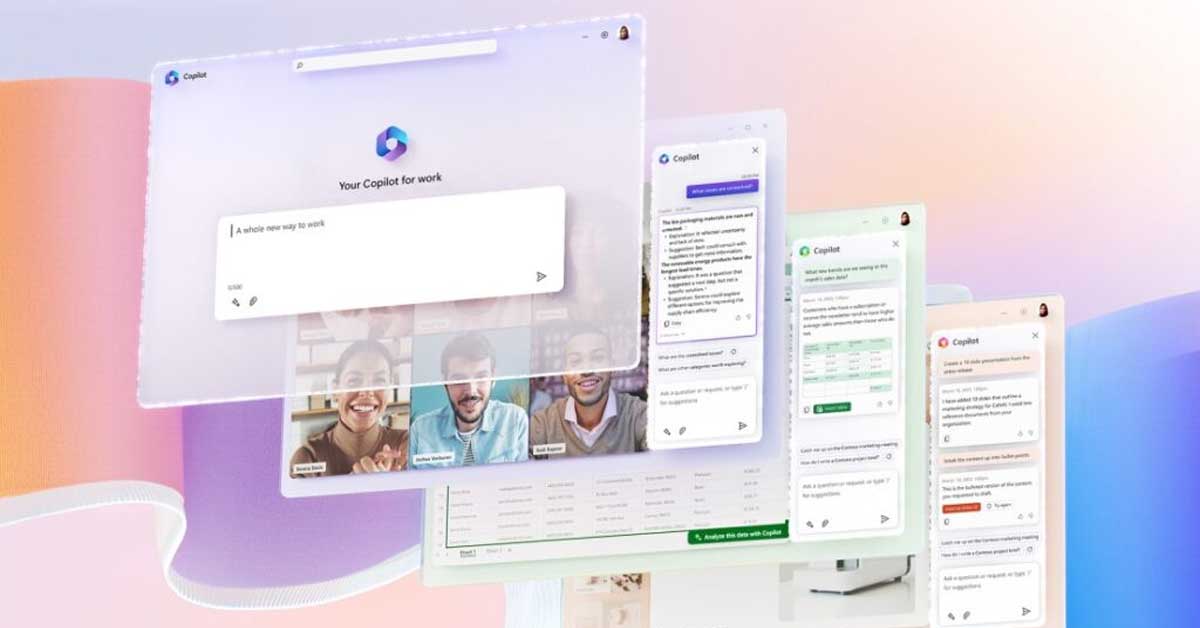
Problems With Hallucinations: Bing Chat may produce inaccurate or nonsensical responses, a common challenge faced by all chatbots.
High System Requirements: Demanding system resources leads to noticeable heating, especially on less powerful devices.
Slower Chat Response Time: Responses take 40 to 60 seconds, lagging behind ChatGPT and Google Bard, impacting the user experience.
Notable Ethical and Legal Issues: Faces criticisms, particularly regarding intellectual property rights and content usage without permission.
Are these advantages good enough for you to switch to Bing, or if you are thinking of using Bing Search, are these disadvantages a deal breaker for you? Let us know.
